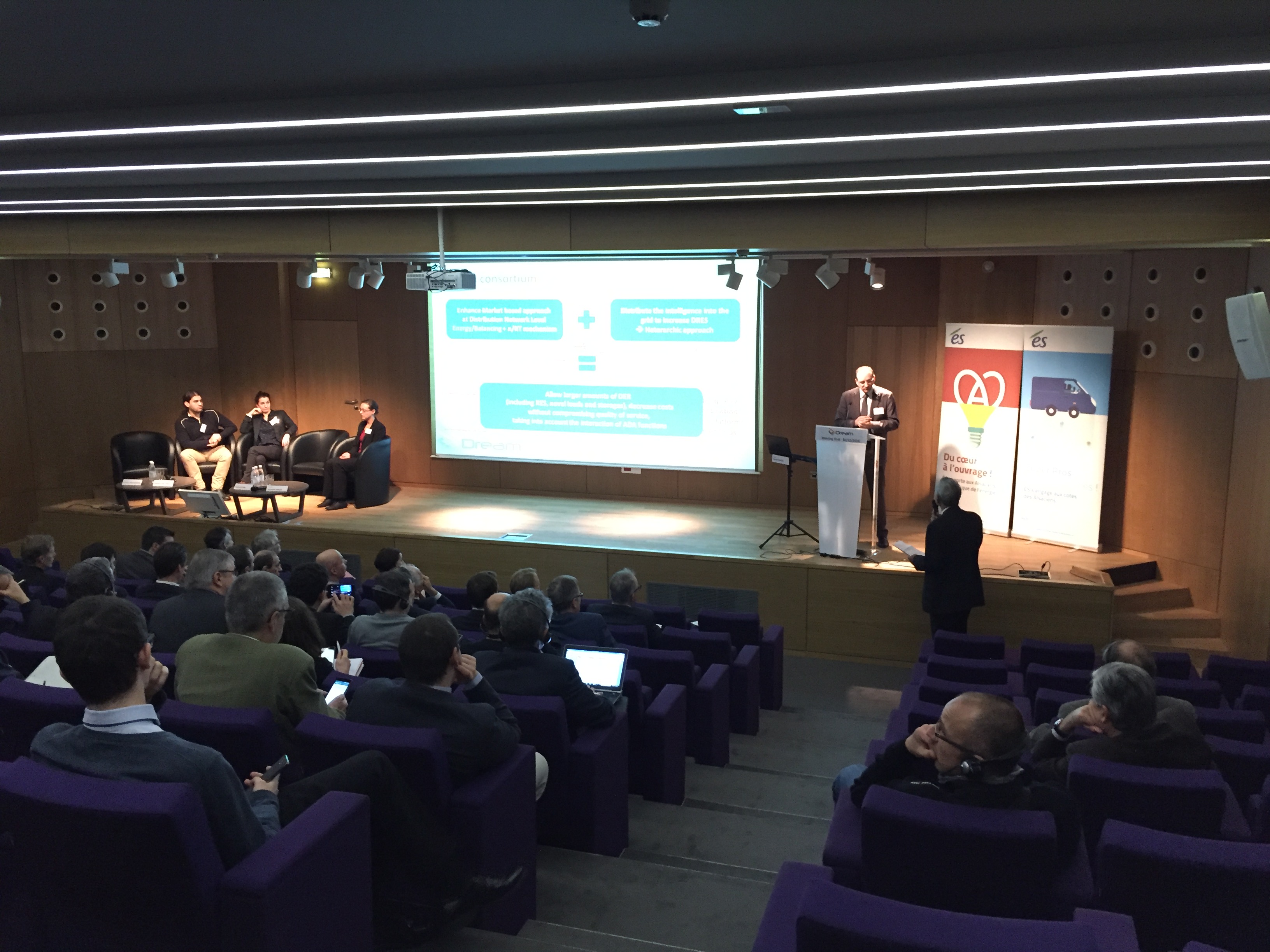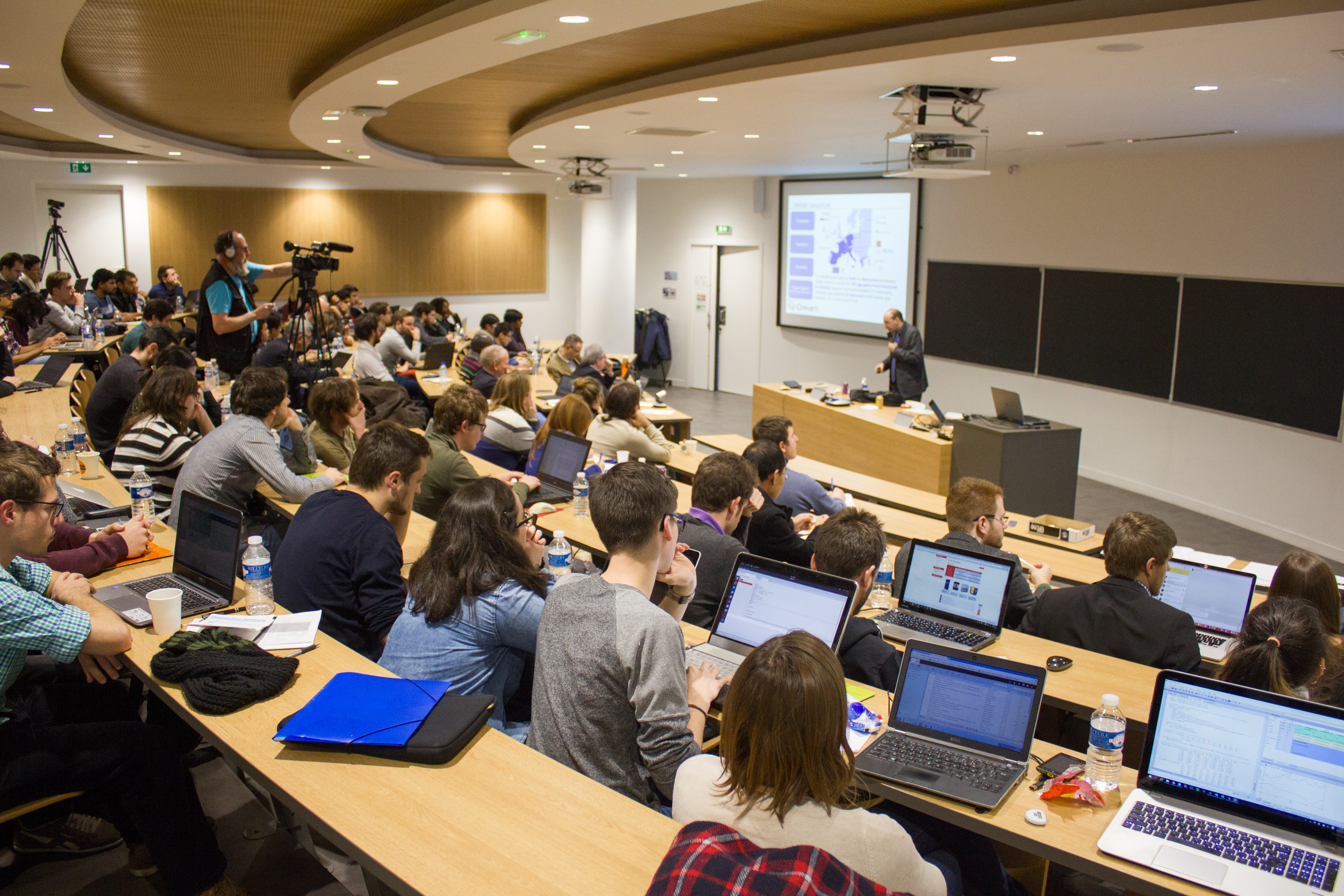
Launched in September 2013, the DREAM collaborative project (2013-2016) is merging 12 academic and industrial partners from 7 European countries. Sustained up to 3.750.000 EUR by the European Seventh Research Framework Program (FP7), the project is led by Raphaël Caire from G2Elab - Grenoble Institute of Technology.
The promising project will lay the foundations for a novel heterarchical management approach of complex electrical power grids, providing new mechanisms for stable and cost effective integration of distributed renewable energy sources, as well as for enhanced consumer involvement in economic and ecological electricity use.
Applying the principles of autonomous agent-based systems to the control and management of the electricity distribution grid will allow the system to constantly adjust to current operational conditions and make it robust to exogenous disturbances. In turn, this will allow for greater penetration of intermittent resources and will make the distribution grid more resilient to failures. DREAM will include several layers of controls for normal, congested and post-fault situations that will use different coordination strategies ranging from market-based transactions to emergency demand response and create ad-hoc federations of agents that will flexibly adjust their hierarchy to current needs.
The system will transit smoothly between control layers depending on local operational conditions, so that responses to disturbances will be sized precisely, margins will be used parsimoniously and full network flexibility will be tapped. The system will involve only limited data transfers and no centralized control, promoting extensibility, heterogeneity and easy deployment across countries with different network architectures and hardware manufacturers allowing Distribution System Operator to optimize its assets and to enhance the flexibility of distributed resources to best integrated renewable sources.
DREAM will demonstrate the economic and technical feasibility of these novel control mechanisms thanks to several real-world small-scale pilots dedicated to different use-cases, and computer simulations will be used to study further scalability.
Furthermore, economic viability will be modelled and examined for the various actors in the grid taking into account the unpredictability of consumer power production, market dynamics, novel regulation schemes and the adoption of DREAM mechanisms over time.
The project also includes the dissemination of the results to a wide community.
Read more on http://www.dream-smartgrid.eu/ and all results on http://cordis.europa.eu/result/rcn/191063_en.html!
Scientific and project coordinator: Raphaël Caire
Events
??- The ???Final Review of DREAM was held on February 22nd, 2017 in Brussels.
- A public DREAM Final Event was organised on November 30th, 2016 in Strasbourg, France. Read more on http://www.dream-smartgrid.eu/dream-project-closing-event/.
? 
-? General meeting, Scientific and Technical Board meeting on December 15-16, 2015 in the framework of the DREAM Winter School:
Discover the videos of the event on http://www.dream-smartgrid.eu/grenoble-winter-school-2015/
The event was coordinated by the Scientific Coordinator of the DREAM project, Prof. Raphael Caire, and was held from 14th to 17th of December 2015 in Grenoble, hosting 120 participants.
The School had as keynote speakers several well known researchers from the DREAM project and from the twins projects (evolvDSO, IDE4L and INCREASE) selected in the same EU call as a key area of knowledge and interest, like the Universitat Politècnica de Catalunya.
A special agreement was reached to have a large participation of students from the KIC Innoenergy (Smart Cities and SENSE). These students participated to EU level discussion after the major courses and attended a creativity course in relation with what they learn. PhD students from Université Grenoble Alpes also attended the distributed intelligence courses.

More information
Contact
Grenoble INP is involved in many other projects




